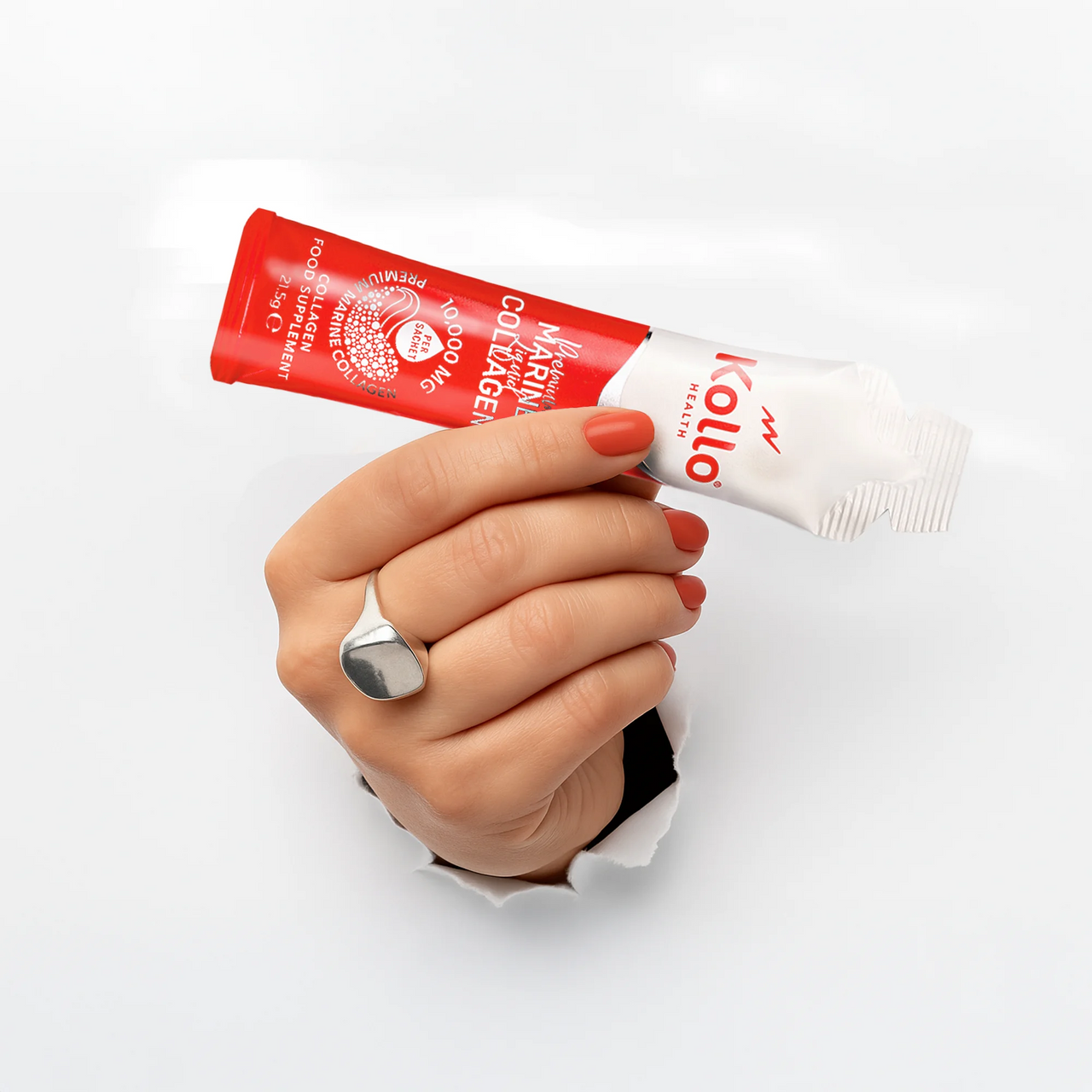Collagen, the most abundant protein in the human body, plays a crucial role in maintaining healthy skin, joints, bones, and connective tissue. As we age, our natural collagen production declines, leading to visible signs of aging and decreased structural support throughout the body. Understanding when to start taking collagen supplements can help you maintain optimal health and appearance throughout your life. This comprehensive guide explores the ideal age to begin collagen supplementation and how to maximize its benefits for your long-term wellness.
How Aging Increases Your Body’s Need for Collagen
The relationship between aging and collagen production is one of the most significant factors in how we age both internally and externally. From our mid-twenties onward, our bodies begin producing approximately 1% less collagen each year. This gradual decline accelerates as we enter our thirties and forties, creating a cumulative effect that becomes increasingly noticeable over time.
Natural collagen production relies on several factors, including adequate amino acids, vitamin C, and overall nutritional status. As we age, our bodies become less efficient at synthesizing collagen from these building blocks, even when we maintain a balanced diet rich in collagen-supporting nutrients. This decreased efficiency means that the collagen we do produce may be of lower quality or quantity than what our bodies produced in our youth.
The body's ability to absorb and utilize collagen peptides from supplements remains relatively stable throughout life, making supplementation an effective strategy for supporting collagen levels regardless of age. However, starting supplementation earlier can provide preventive benefits, while beginning later focuses more on repair and restoration of already diminished collagen stores.
Signs That You Might Need Collagen Support
Recognizing the early indicators of collagen depletion can help you determine when to start taking collagen supplements, regardless of your chronological age. These signs often appear gradually and may be mistaken for normal aging processes.
Early Signs of Collagen Loss
The first signs of declining collagen levels typically appear in the skin, as it contains the highest concentration of Type I collagen in the body. Fine lines around the eyes, mouth, and forehead are often the earliest visible indicators that collagen production is declining. These lines may initially appear only during facial expressions but gradually become more permanent as skin elasticity decreases.
Skin hydration changes are another early indicator of collagen loss. You may notice that your skin feels less plump, appears duller, or requires more intensive moisturizing than in previous years. The skin's ability to bounce back after being gently pinched may also diminish, indicating reduced elasticity from declining collagen levels.
Joint comfort and flexibility changes can signal the need for collagen support, particularly if you're experiencing stiffness after periods of inactivity or minor discomfort during physical activities. These early joint changes often occur before significant structural damage and represent an optimal time to begin collagen supplementation.
Hair and nail changes may include increased brittleness, slower growth, or changes in texture. While these symptoms can have multiple causes, they often accompany other signs of collagen depletion and may improve with appropriate supplementation.
Factors That Accelerate Collagen Depletion
Several lifestyle and environmental factors can accelerate the natural decline in collagen production, making earlier supplementation beneficial. High sugar intake creates advanced glycation end products (AGEs) that damage existing collagen and impair new collagen synthesis. This process, known as glycation, essentially "caramelizes" collagen fibers, making them stiff and less functional.
Chronic stress elevates cortisol levels, which can interfere with collagen production and accelerate breakdown of existing collagen stores. This stress-related collagen loss affects not only appearance but also joint health and overall structural integrity.
Smoking and excessive alcohol consumption significantly impact collagen synthesis by reducing vitamin C absorption and creating oxidative stress that damages collagen fibers. These habits can advance the visible signs of aging by several years compared to non-smokers and moderate drinkers.
Recommended Age to Start Taking Collagen

The optimal age to begin taking collagen supplements varies based on individual factors, but general guidelines can help determine the best timing for different life stages.
Collagen in Your 20s: Prevention
For individuals in their twenties, collagen supplementation serves primarily as a preventive measure. While natural collagen production is still relatively high during this decade, beginning supplementation can help maintain optimal levels and potentially delay the onset of visible aging signs.
Taking collagen supplements in your twenties is particularly beneficial if you have lifestyle factors that accelerate collagen loss, such as high stress levels, poor sleep habits, or significant sun exposure. Athletes and individuals with physically demanding careers may also benefit from early collagen support to maintain joint health and muscle mass.
Collagen in Your 30s: Early Support
The thirties represent a critical transition period when collagen production declines become more noticeable, and supplementation shifts from purely preventive to early support. This is often when individuals first notice changes in skin texture, the appearance of fine lines, or minor joint stiffness.
Starting collagen supplementation in your thirties can effectively slow the progression of age-related changes and may reverse some early signs of collagen depletion. The body's ability to utilize collagen peptides remains high during this decade, making supplementation particularly effective.
A multivitamin with collagen can be an excellent choice for thirty-somethings, as it addresses multiple nutritional needs while providing collagen support. Adding vitamin C and hyaluronic acid to your supplementation routine can enhance collagen synthesis and improve skin hydration.
Collagen in Your 40s and Beyond: Repair
Entering your forties marks a period when collagen supplementation becomes more focused on repair and restoration rather than prevention. By this age, most individuals have lost 20-30% of their original collagen production capacity, making supplementation crucial for maintaining health and appearance.
The benefits of taking collagen supplements become more apparent during this period, as the body's natural collagen production can no longer keep pace with daily collagen breakdown. Higher doses of 15-20 grams daily may be necessary to achieve optimal results, depending on individual needs and health goals.
Starting Collagen Later in Life
Beginning collagen supplementation after age 50 can still provide significant benefits, though results may take longer to become apparent. The body's reduced ability to synthesize collagen makes supplementation even more important for maintaining quality of life and independence.
Older adults may benefit from higher doses and longer supplementation periods to achieve noticeable improvements. Combining collagen with other supportive nutrients like vitamin C, vitamin D, and calcium can enhance overall effectiveness for bone and joint health.
When Lifestyle Demands Early Use
Individuals with demanding careers that involve significant stress, travel, or irregular schedules may also benefit from early collagen supplementation to counteract the accelerated aging effects of their lifestyle. People with genetic predispositions to early aging, autoimmune conditions affecting connective tissue, or those recovering from injuries may need to start collagen supplementation earlier than their peers to maintain optimal health.
Benefits of Taking Collagen Supplements
Understanding the specific benefits of collagen supplementation can help you set realistic expectations and choose the most appropriate products for your needs.
Skin Elasticity and Hydration
Collagen peptides provide the amino acids necessary for the body to produce new collagen fibers, while also stimulating existing collagen-producing cells (fibroblasts) to increase their activity. This dual action helps restore skin thickness, reduce fine lines, and improve overall skin texture.
The hydration benefits of collagen supplementation extend beyond surface-level improvements. Collagen helps maintain the skin's moisture barrier, reducing transepidermal water loss and creating a more youthful, plump appearance. These effects are particularly noticeable in areas prone to early aging, such as around the eyes and mouth.
Joint and Bone Support
Collagen supplementation provides crucial support for joint health by supplying the building blocks for cartilage repair and maintenance. Type II collagen, primarily found in cartilage, is particularly important for joint health, while Type I collagen supports the bone matrix that anchors joints.
Regular collagen supplementation can reduce joint discomfort and improve mobility, particularly in weight-bearing joints like knees and hips. The amino acids in collagen supplements liquid help maintain the smooth, cushioning properties of cartilage while supporting the synovial fluid that lubricates joints.
Bone health benefits from collagen supplementation extend beyond just providing structural support. Collagen makes up approximately 30% of bone mass and provides the flexible matrix that prevents bones from becoming brittle. This is particularly important for post-menopausal women and older adults at risk for osteoporosis.
Hair and Nail Strength
Collagen supplementation supports hair and nail health by providing the amino acids necessary for keratin production. Keratin, the primary structural protein in hair and nails, requires adequate amino acid availability for optimal synthesis.
Many individuals notice improved nail strength and reduced brittleness within 4-6 weeks of starting collagen supplementation. Hair improvements may take longer to become apparent, as hair growth cycles are slower, but many users report increased shine, thickness, and reduced breakage after 2-3 months of consistent use.
Choosing the Right Collagen Supplement

Selecting the most appropriate collagen supplement requires understanding the different types available and their specific benefits.
Types of Collagen (Type I, II, III, etc.)
Type I collagen is the most abundant in the human body and is primarily responsible for skin, bone, and tendon health. This type is ideal for individuals focused on anti-aging benefits and overall structural support. Marine collagen is predominantly Type I, making it excellent for skin health goals.
Type II collagen is found primarily in cartilage and is essential for joint health. Chicken-derived collagen is the primary source of Type II collagen supplements and is particularly beneficial for individuals with joint concerns or those engaged in high-impact activities.
Type III collagen works alongside Type I collagen in skin, blood vessels, and internal organs. Bovine collagen typically contains both Type I and Type III collagen, making it a good choice for comprehensive health benefits.
Collagen Sources: Marine, Bovine, Chicken, and More
Marine collagen offers superior bioavailability and is ideal for skin health benefits. The smaller peptide size allows for rapid absorption, and the Type I collagen content directly supports skin structure. Marine collagen is also suitable for pescatarians and those avoiding land-based animal products. The choice between these sources depends on your specific health goals, dietary preferences, and any allergies or sensitivities you may have.
Additional Ingredients to Look For (Vitamin C, Hyaluronic Acid)
Vitamin C is essential for collagen synthesis and should be included in any comprehensive collagen supplementation routine. Many collagen supplements now include vitamin C to enhance absorption and effectiveness. Hyaluronic acid works synergistically with collagen to improve skin hydration and joint lubrication. This combination is particularly powerful for anti-aging benefits and joint health.
Other beneficial additions include biotin for hair and nail health, antioxidants like vitamin E to protect existing collagen, and minerals like silica that support collagen cross-linking. A multivitamin with collagen can provide comprehensive nutritional support while ensuring you have all the cofactors necessary for optimal collagen synthesis and utilization.
Final Thoughts
Determining the right age to start taking collagen supplements depends on your individual health goals, lifestyle factors, and current signs of collagen depletion. While the mid-twenties to early thirties represent the optimal window for beginning preventive collagen supplementation, it's never too late to start reaping the benefits of collagen support.
For those seeking a quality collagen supplement UK, numerous options are available, from convenient liquid collagen formulations to versatile collagen powder that can be easily incorporated into daily routines. The most important factor is beginning supplementation at the right time for your individual needs and maintaining consistency for optimal results.
Remember that collagen benefits accumulate over time, and the earlier you start supporting your body's collagen needs, the better positioned you'll be to maintain health, vitality, and appearance throughout your life. Whether you're starting in your twenties as a preventive measure or beginning later in life for repair and restoration, collagen supplementation can be a valuable addition to your wellness routine.







